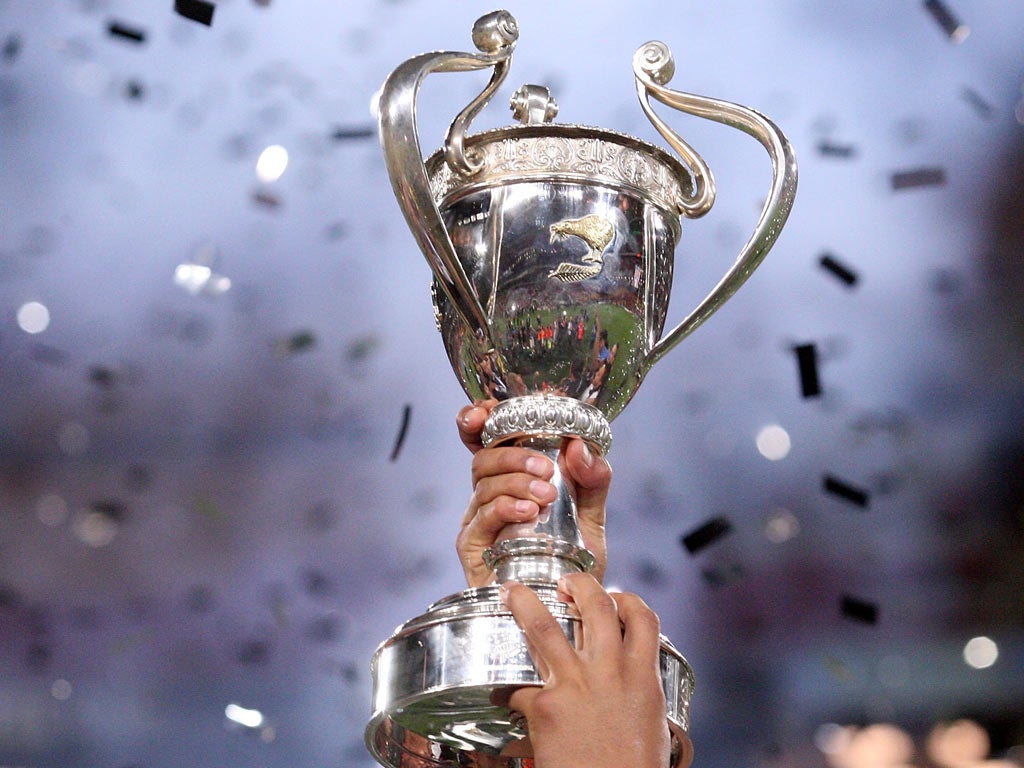Four Nations can erase pain of World Cup
Expect more tries and better rugby as 13-man code emerges from union's shadow

Your support helps us to tell the story
From reproductive rights to climate change to Big Tech, The Independent is on the ground when the story is developing. Whether it's investigating the financials of Elon Musk's pro-Trump PAC or producing our latest documentary, 'The A Word', which shines a light on the American women fighting for reproductive rights, we know how important it is to parse out the facts from the messaging.
At such a critical moment in US history, we need reporters on the ground. Your donation allows us to keep sending journalists to speak to both sides of the story.
The Independent is trusted by Americans across the entire political spectrum. And unlike many other quality news outlets, we choose not to lock Americans out of our reporting and analysis with paywalls. We believe quality journalism should be available to everyone, paid for by those who can afford it.
Your support makes all the difference.One of the potential problems with rugby league's Four Nations, which opens with Australia playing New Zealand at Warrington tonight, is that it can hardly avoid comparisons with events on the other side of the world.
Set alongside rugby union's World Cup, the crowds will be smaller, the coverage minimal, the rugby and the off-field behaviour better. There will be more tries than goals. All that can be predicted with some confidence.
There is no denying that league's weakness is its lack of a convincing international dimension. The Four Nations, a concept which is itself a rather inadequate replacement for full tours to and by Great Britain, goes into cold storage after this tournament. It is scheduled to reappear in 2014, after a World Cup here the previous year.
By comparison with either that or rugby union's shindig, this is a condensed, intimate affair. Even four nations could be too many, however.
The concept began as Three Nations, with England, Australia and New Zealand playing each other twice, leading to a final. Provided nobody fell down on the job too badly, that was a guarantee of plenty of competitive rugby.
The worthy motive of encouraging France and Papua New Guinea – the next strata down – has diluted that promise. It seemed an exciting development when Wales beat the French to qualify for this year's tournament; now one rather fears for them.
With a couple of their brighter prospects opting to qualify for England, the talismanic Gareth Thomas retired and the guts kicked out of the professional structure in the Principality by the implosion of Crusaders, it will be a major achievement for Wales – now largely and creditably represented by Welsh-born players – to avoid three heavy defeats, starting with England at Leigh tomorrow.
The title will be decided by the games between the big three, culminating in the final at Elland Road on 19 November. Here, there is much to look forward to.
To see the Kangaroos and the Kiwis go head-to-head in a stadium as tight to the touchlines and as atmospheric as the Halliwell Jones is a treat no rugby league follower could resist. Likewise next weekend's double-header at Wembley: England (or rather Great Britain) have a good record against the Aussies in that stadium (or rather its predecessor) and the RFL is confident of topping the 50,000 mark for the two games. They are part of something of a blitz on London next week, with the rebranding of Harlequins RL (who revert to their old identity as London Broncos), the International Player of the Year awards and all four squads spending time promoting the game in the capital.
The key game could well be at Hull the following weekend, when England and New Zealand should be contesting a place in the final against Australia.
The Kiwis might look well below full power this time, but they have fooled us that way before. In Benji Marshall, they have a player who can take any game by the throat, whilst newcomers such as the full-back, Kevin Locke, and the scrum-half, Kieran Foran, look genuine prospects.
Australia, with that familiar spine of Queensland class and experience, also have some exciting new faces, headed by Akuila Uate, a winger who has the potential to become one of the very best.
Which leaves England, or the United Nations, as disgruntled purists might put it. Coach Steve McNamara's decision to use four players from the southern hemisphere has not pleased everyone, but that tough attitude of "whatever it takes" could be just the ticket.
Four Nations: Who's who
Australia
Coach Tim Sheens
Captain On his farewell tour, Darren Lockyer
One to watch Thrilling winger Akuila Uate
Bookies say 11-4 on
England
Coach Steve McNamara
Captain Pack leader par excellence, Jamie Peacock
One to watch Kiwi-born half-back Rangi Chase
Bookies say 7-1 shot
New Zealand
Coach Stephen Kearney
Captain Benji Marshall, developing into the tactical leader that the Kiwis need.
One to watch Kevin Locke
Bookies say 3-1
Wales
Coach Iestyn Harris
Captain Lee Briers
One to watch Widnes-bound Lloyd White
Bookies say At 100-1, the rank outsiders
Join our commenting forum
Join thought-provoking conversations, follow other Independent readers and see their replies
Comments